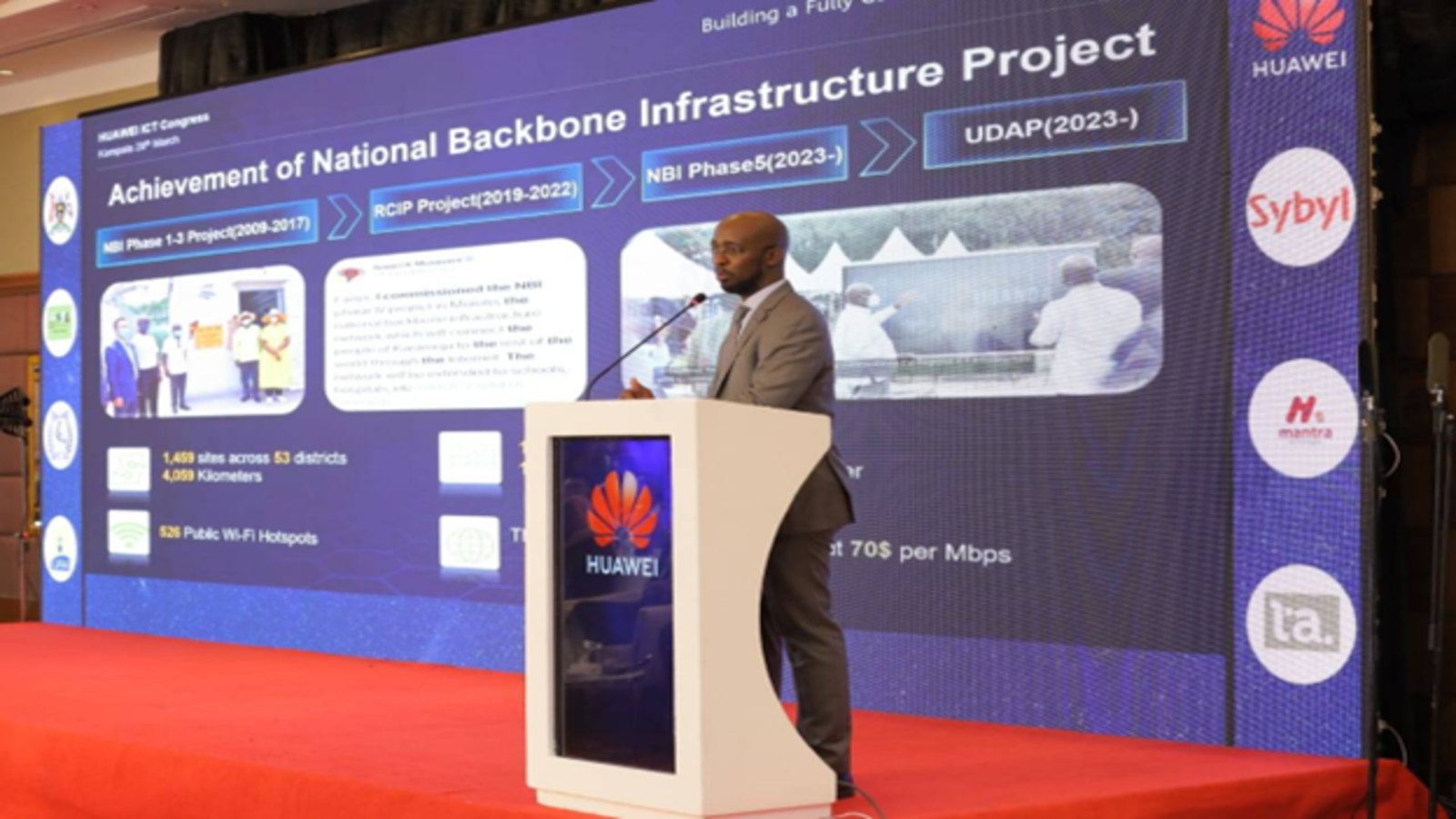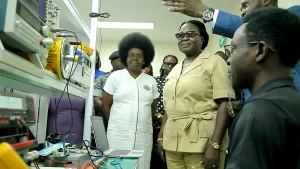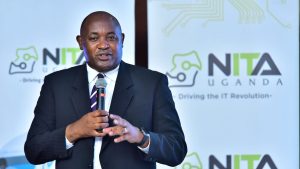Share
57% of the National Backbone Infrastructure (NBI) project is finished, according to the National Information Technology Authority of Uganda (NITA-U), which is in charge of leading the nation’s ICT infrastructure development.

At the conclusion of the 4th ACCA Uganda Members Convention 2024, Collin Babirukamu, Director for E-Government Services at NITA-U, gave a speech outlining the accomplishments and difficulties faced by the authority.
He underlined that more than 1,600 government offices, agencies, and departments have already been connected by the program, significantly lowering the cost of internet for government organizations from Shs 261,127 to Shs 130,563 per Mbps.
The advantages of economies of scale as additional users join the network are reflected in this price reduction.
In addition, Babirukamu presented the overarching plan, which calls for expanding the NBI to 5,000 government agencies by 2028.
In order to guarantee that even the most remote locations profit from fiber optic access, the emphasis is on vital industries like health, education, and local government.
“Our dedication to closing the digital divide is demonstrated by the installation of Wi-Fi hotspots in rural areas and the integration of solar-powered cables in underserved regions,” he said.
In major cities, 580 Wi-Fi hotspots already offer free or heavily discounted internet, with plans to expand accessibility much further.
Babirukamu did, however, admit the difficulties encountered, such as the delays brought on by financial limitations and bureaucratic procedures.
He emphasized the significance of regional cooperation and public-private partnerships while expressing hope about reaching the goal on schedule in spite of these obstacles.
He said, “We are laying the foundation for Uganda’s digital transformation, not just laying cables.” As part of the rollout, 12 refugee host communities will be connected, encouraging equity and diversity in ICT access.
Despite the logistical and financial challenges associated with the remaining 43% of the rollout, stakeholders and experts are confident that Uganda is in a strong position to meet its objectives for digital transformation.
In order to facilitate effective service delivery, enhance education, and promote economic progress, the NBI must be expanded. In order to guarantee that no region is left behind, the current emphasis is on addressing bottlenecks and keeping the momentum going.












